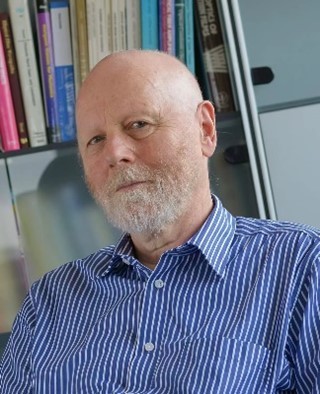Lecture Summary
Biography
Keeping a Tight Focus on Light
Philip Russell
罗素高级光波科学中心
For more than 100 years it has been received wisdom that a beam of light cannot be kept tightly focused in vacuum, because diffraction will always cause it to spread out as it travels. This has severely restricted the study of light-matter interactions in materials with low refractive indices such as gases, vapours, and many liquids. Hollow-core photonic crystal fibre (PCF), first introduced by the speaker in 1991, has made it possible for the first time to trap a single-lobed beam of light within a microscopic hollow channel. This represents one of the most exciting breakthroughs in recent years, for it provides a means of eliminating beam diffraction over almost unlimited distances in empty space. A selection of recent applications, including light-driven particle propulsion in hollow-core PCF, extreme pulse compression and ultraviolet light generation in gas-filled PCF, and high bandwidth data transmission, will be introduced.
Keeping a Tight Focus on Light
Philip Russell
罗素高级光波科学中心,
Philip Russell was Emeritus Director at the Max-Planck Institute for the Science of Light (MPL), which he co-founded together with Gerd Leuchs in January 2009. From 2005 to 2021 he was Krupp Professor of Experimental Physics at the University of Erlangen-Nuremberg. He obtained his doctorate at the University of Oxford in 1979, spending three years as a Research Fellow at Oriel College, and subsequently worked at universities and research establishments in Germany, the USA, the UK and France. His research interests have focused mainly on the physics and applications of periodically microstructured materials, especially photonic crystal fibres. He is a Fellow of the Royal Society and The Optical Society (OSA) and is the recipient of several awards including the 2000 OSA Joseph Fraunhofer Award/Robert M. Burley Prize, the 2005 Thomas Young Prize of the Institute of Physics, the 2005 Körber Prize for European Science, the 2013 EPS Prize for Research into the Science of Light, the 2014 Berthold Leibinger Zukunftspreis, the 2015 IEEE Photonics Award and the 2018 Rank Prize for Optoelectronics. In 2016 he received an honorary doctorate from the Universidad Internacional Menéndez Pelayo in Santander, Spain, and he was OSA President in 2015, the International Year of Light.


